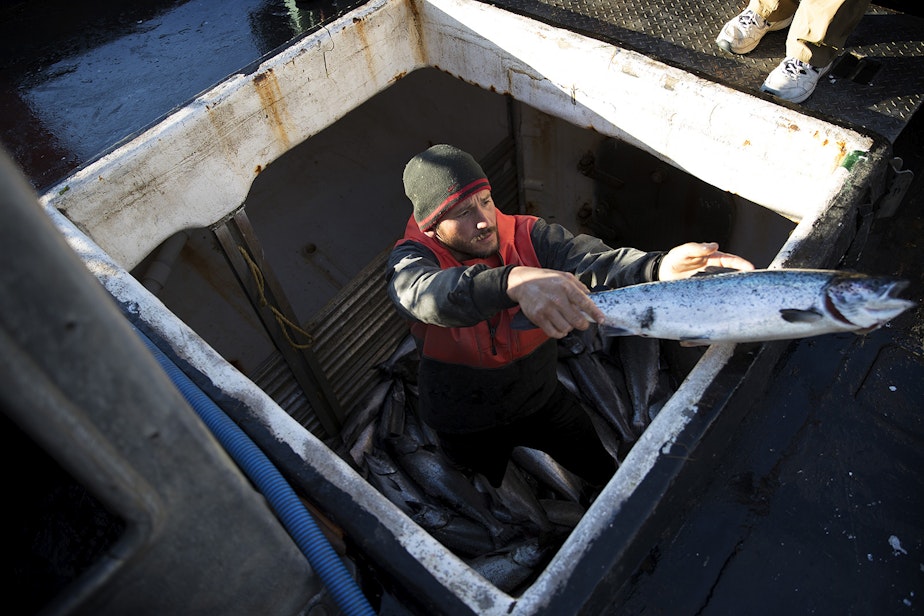'Pollution' of farmed salmon into Puget Sound could lead to penalties

The scene near Cypress Island is being described as a circus after thousands of farmed Atlantic salmon spilled out of a net last weekend near the San Juan Islands. The company that owns the net, Cooke Aquaculture, has not yet confirmed if the spill is contained.
The net was holding approximately 305,000 fish, but the amount that spilled is unclear. The company could face penalties.
Multiple agencies are investigating, including the state Department of Ecology. Ecology spokesperson Larry Altose says a fish spill is considered pollution, which could be a violation of Cooke Aquaculture's water quality permit.
Altose: "And at some point in the future we will make decisions about compliance, and these could run up to penalties, orders or a combination of the two, in order to ensure that the company is held to account."
The Department of Fish and Wildlife is also investigating and has asked people to help out by fishing for the Atlantic salmon.
Sponsored
Critics of fish farms question whether the Atlantic salmon are safe to eat. Kurt Beardsley is with Wild Fish Conservancy.
Beardsley: "Many of them that we looked at, immediately upon death, they had gray gills. These are not signs of a healthy fish. And the reason Department of Fish and Wildlife believes they are healthy to eat is because Cooke industry tells them they are."
People are fishing for the salmon using nets, some with plans to sell them locally.
Cooke Aquaculture operates eight fish farms in Washington and has requested a permit for a new pen. Beardsley's group is circulating a petition to oppose it.
On Thursday, the Lummi Nation declared a state of emergency in response to the fish disaster. The Lummi Nation says the invasive fish could threaten the spawning grounds for native salmon.
Sponsored
Cooke Aquaculture has not responded to requests for comment.

